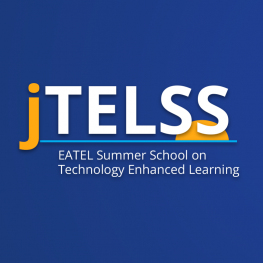Speakers
Vilma Sukackė
Kaunas University of Technology, LithuaniaStart
09/06/2023 - 16:00
End
09/06/2023 - 17:30
Implementing technology-enhanced active learning methods in f2f and distance modes
Friday 09/06 16:00-17:30h
Workshop Space A
Abstract
Design thinking (DT) is a popular methodology that has been applied not only by higher education institutions, but by world’s leading companies as well. Design thinking focuses on real life problems and providing innovative solutions to them. One of the core principles of Design Thinking is focusing on the potential end-user of the proposed innovative solution. The method is highly flexible and can be applied not only in the context of, for instance, developing start-ups, but in teaching a number of different disciplines that promote students’ creativity, critical thinking, teamwork, and other 21st century skills and competences. During the workshop, the participants will form small teams and go through all of the steps of developing innovative solutions to various relevant problems, supporting every step by relevant Information and Communication Technologies (ICTs). As a take-away from the workshop, attendees will design a plan on how DT, together with the most relevant ICTs, could be implemented in individual teaching and learning scenarios.
Needs Analysis
Active and student-centered methodologies are becoming the new norm at modern educational institutions. To equip learners with 21st century skills and competences, various study methodologies similar to PBL are becoming more and more popular. One of such methodologies is Design Thinking, which nowadays is inseparable from the use of digital technologies on every stage of the method, from collaboratively generating ideas to building and testing a prototype of a solution to a relevant and authentic challenge. Many PhD candidates are novice teachers and such methodologies are often not familiar to them. Technology-enhanced learning is inseparable from skilfully crafted pedagogies, and being able to implement such methodologies as DT is a great asset for any PhD (candidate). Learning to implement this methodology also fosters one’s creativity, focus on empathising with the potential end-user, encourage searching for innovative solutions, and embracing co-creating in diverse teams.
Learning Objectives
After attending the workshop, the learners will:
- Know the main steps and process of Design Thinking;
- Be able to adapt Design Thinking to their own needs and teaching scenarios;
- Be able to choose the most suitable Information and Communication Technologies to support the implementation of Design Thinking.
Pre-activities
None.
Session Description
Workshop attendees will be briefly presented with the essence and the process of Design Thinking. Later, they will be put into groups where they will choose relevant and authentic challenges to address and work together until they can propose and, if possible, build a prototype. As we go through the different stages of Design Thinking, attendees will be offered various tips and tricks of how they could implement the methodology themselves and what Information and Communication Technologies might be used to support the learners on every stage. At the end, learners will generate ideas and discuss how they could implement Design Thinking in their own teaching/learning scenarios.

